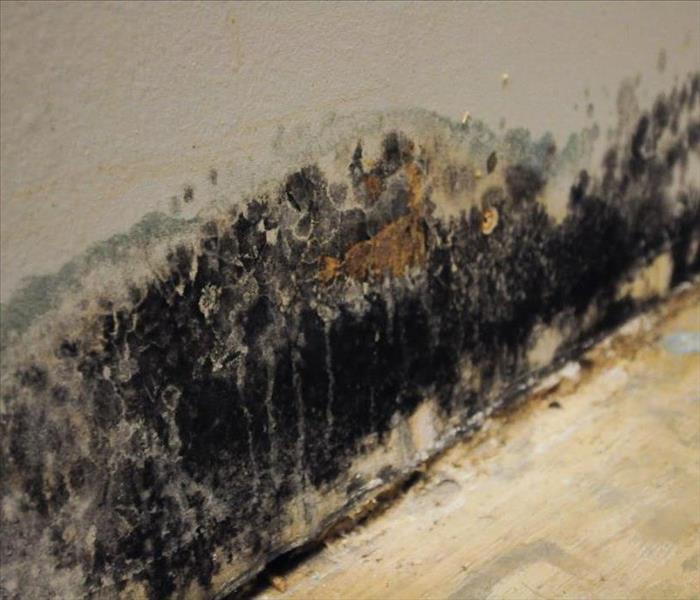Using Chemicals on Mold?
10/2/2018 (Permalink)
DOES BLEACH KILL MOLD?
Lets get this straight first!
As soon as you notice a presence of mold, call SERVPRO of Ft Lauderdale North at (954) 733-1006 24/7 for immediate assessment. Our qualified technicians have the tools and training to identify the severity of the problem and can best inform you where to go from there. Remember, faster to your disaster, SERVPRO of Ft Lauderdale North will make it "Like it never even happened."
Bleach
You clean your bathroom with it, disinfect household items with it, when diluted properly, you can even use it to clean things like toys or dental retainers. So why wouldn't you use it for something as harmful as mold? Well, when mold appears on walls and ceilings in your home it's likely already formed on the inside of those structures from water events, like a pipe leaking, or excessive humidity. Because of the chemical composition of bleach, it won't do an effective job of permeating into where the mold is living. The particles of the bleach are simply too large to penetrate most surfaces. So even if you "clean up" the mold and can no longer see it, it can still be lurking and pose a health threat to you and your family.
It's not uncommon for people to think dumping bleach on areas affected by mold will solve the problem without needing to call in professional help. This could not be farther from the truth.
Dead mold is still dangerous
Even if bleaching completely kills all the mold in an area of your home, it can still be dangerous. While dead mold can no longer grow, these "non-viable" mold spores can still be hazardous to your health, particularly to people with allergies, asthma, or people that are immune-compromised such as the elderly.
So what can you do?
Be on the lookout for these signs of mold:
- strong musty odors
- evidence of moisture
- excessive humidity
- visible mold
Give us a call at (954) 733-1006 or visit our website at http://www.SERVPROftlauderdalenorth.com/

 24/7 Emergency Service
24/7 Emergency Service
